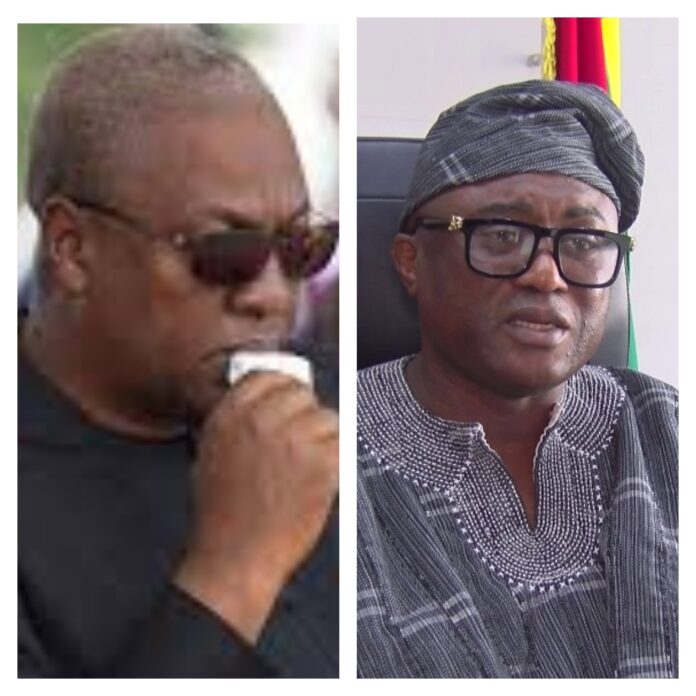In the wake of a devastating helicopter crash that claimed the lives of eight individuals, the Ghana National Association of Teachers (GNAT) is demanding the immediate declaration of a state of emergency to tackle the deepening crisis of illegal mining, popularly known as galamsey.
The tragedy has once again underscored the dangers posed by galamsey, a menace that continues to claim lives, destroy communities, and deplete the country’s natural resources.
GNAT described the fallen as “heroes whose sacrifices must never be forgotten” and urged the nation to turn this moment of grief into a rallying point for unity, strength, and patriotism.
Speaking to Adom News, GNAT General Secretary Thomas Tanko Musah expressed sorrow and outrage, urging government action beyond political rhetoric.
“Enough of the ‘never again’ speeches. If what we are hearing is true, that President John Dramani Mahama and NDC National Chairman Johnson Asiedu Nketia and others were supposed to be on board, then something must be done immediately about galamsey. How many more lives must we lose before we act?” he asked.
Mr. Musah drew parallels between the crash and the 2017 killing of Major Maxwell Mahama, another incident tied to illegal mining that shocked the nation. He recalled former President Akufo-Addo’s vow to put his presidency on the line to end the practice, noting that years later, the crisis remains unresolved.
“Enough is enough. Action must be taken now—or never. This tragedy must not be in vain,” he said, stressing that the courts must also be ready to support the fight.
GNAT reiterated that illegal mining is not only an environmental challenge but a national security threat requiring emergency-level intervention.
“How can we sit back and allow galamsey to make widows of our women and orphans of our children? This is beyond politics—this is about the soul of our nation,” Mr. Musah said.
As Ghana mourns the victims, GNAT’s message is clear: the time for talk is over. The Association is calling for immediate, decisive action to save lives, protect the environment, and preserve the nation’s future.
Source: Kodwo Mensah Aboroampa



